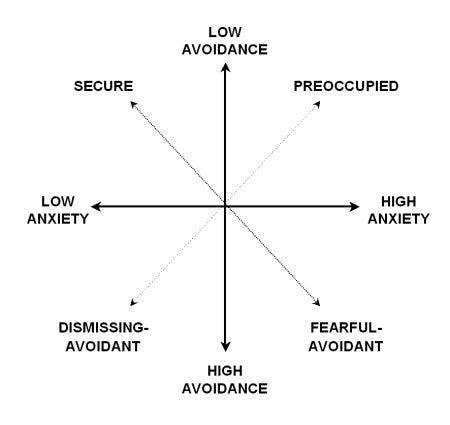Church Rupture & Repair
Photo by Ante Gudelj on Unsplash
In 1672 John Owen wrote about leaders bent on “the ends of their own ambition, power, and avarice” which caused Christians to “grow weary of the yoke, and sometimes regularly, sometimes irregularly, contrive their own freedom and deliverance” from such leaders. Owen understood that the result of that kind of “ecclesiastical domination” and “degeneracy of discipline” was to “alienate the minds of many from an acquiescence in their stations or relations to such churches.”1
“Alienation” from such churches is perhaps an unusual and yet all-too-familiar way of putting it. My question today is, why? Why are Christians growing weary of the yoke and contriving freedom and deliverance?
What follows is an attempt at an explanation that goes a bit deeper than broad brush strokes about church hurt, leader corruption and disillusionment. Not that those aren’t valid and true. But if that’s as far as our diagnosis goes, the solution seems too big to hope for, as if (and as is often alleged) Christians are demanding perfect leaders who never make hurtful mistakes. We don’t need perfect pastors, just like we don’t need perfect parents. God’s grace is bigger than that! And here’s why:
“Ruptures are a daily occurrence in all our relationships and ... our systems only need to receive resonance and reflection on the first try at connecting about 33 percent of the time to cultivate security. All the rest is optimally rupture and repair.”2
This statistic comes from attachment research and the idea of the “good enough” parent. When caregivers provide good care by responding well to a child’s needs 1/3 of the time, and when the caregiver repairs the 2/3 of the time he or she misses a child’s needs or responds poorly, the child will develop a style of relating that is secure, neither anxiously dependent or dismissively avoidant. As Bonnie Badenoch often puts it, and more succinctly, healthy relationships are 33% connection with rupture and repair.
What wonderful news that is! My clients who have children (and let’s be honest, my wife and I as well) are often relieved to hear that research proves the power of repentance and grace to cover a multitude of sins. And what is true of parent and child applies equally to all close relationships where trust, safety, care and love are expected.
I am no attachment theory expert, but some brief study shows that research has been done to apply attachment theory to group relationships (it was originally an individual/dyadic concept). Attachment theory explains that individuals relate to other individuals along a scale of anxiety and avoidance. For those less familiar with this theory, here is a brief overview of the different attachment styles seen in this diagram:
From Phillip R. Shaver and R. Chris Fraley, Self-Report Measures of Adult Attachment
What I am interested here is how we might apply the attachment concept of rupture and repair to the group dynamics of church.
It is widely recognized that the person of the therapist and the quality of the therapeutic relationship are key to positive outcomes. In particular, one researcher “argued that the alliance [therapeutic relationship] is curative in and of itself and that potentially the curative aspects of psychotherapy rests with the resolution of alliance ruptures.” Translation: relationships can heal people, not by providing perfect care, but simply by healing the inevitable disconnections that occur in all relationships.
The ability to repair ruptures requires at least two fundamental components: the expression of negative feedback by the client, and nondefensive exploration facilitated by the therapist. Poor outcomes are caused by failure to repair ruptures in the therapeutic relationship, eg the client was unable to voice disconnection, the therapist was unaware, and the therapist responded defensively. These ruptures leave clients responding adaptively by withdrawal or confrontation:
“Withdrawal ruptures refer to those instances when the client responds to difficulties, misunderstandings, or disagreements in the therapeutic relationship by moving away from the therapist, either by falling silent, offering minimal responses to questions, or denying an aspect of his or her experience.”3
“By contrast, a confrontation rupture is characterized by the client moving against the therapist, expressing anger or dissatisfaction with the therapist or treatment”4
In either case, there is a critique of the therapist, whether assumed (in withdrawal) or explicitly stated (in confrontation). Therapists have two options: validate the client and work to resolve the problem, or defend against the criticism and blame the client. Defense and blame will leave the client relying on the adaptive response, whether withdrawal (an avoidant attachment response) or confrontation (an anxious attachment response).
In like manner, when church leaders defend rather than validate concerns, they cause ruptures of withdrawal and confrontation. But there is a limit to this therapy analogy. Ruptures in church are more akin to ruptures in families. When parental failures go unrepented and unacknowledged, children get stuck in ways of coping with life that are anxious, avoidant, and disorganized. Unrepaired ruptures in church cause similar long-term attachment trauma.
One need only follow religious news for a few weeks to see stories of leaders defending leaders and blaming the whistleblowers. Is it any wonder that Christians are both leaving the church (avoidant withdrawl) and constantly confronting its leaders (anxious confrontation)?
The solution will never come from criticizing the critics. That perpetuates the vicious cycle of rupture. Neither will healing come from defensive cries of “nobody’s perfect”. All that is needed is something many worshippers do corporately every week in prayers of confession and repentance:
Text within this block will maintain its original spacing when published
Most merciful God, we confess that we have sinned against you in thought, word, and deed, by what we have done, and by what we have left undone. We have not loved you with our whole heart; we have not loved our neighbors as ourselves. We are truly sorry and we humbly repent. For the sake of your Son Jesus Christ, have mercy on us and forgive us; that we may delight in your will, and walk in your ways, to the glory of your Name. Amen.
We proclaim to ourselves and to others the need to admit our failures to love God and neighbor. But are these mere empty phrases? When leaders can say with their lives to congregants on Monday what they said to God with words on Sunday, we can hope that those relating to the church in anxiety and avoidance will find healing. All that is needed is rupture and repair.
A closing word to pastors, elders, deacons, and Christian leaders:
What would it change if you were free to screw up 66% of the time and know your people would still follow and grow as disciples if all you had to do was own it? I know you face pressure, both implicit and explicit, to do it right 100% of the time. But please listen to the men and women in your churches that know full well you are sinners like them. They don’t want you to be perfect. All they want is for you to listen with empathy when they share grievances, say “We are truly sorry and we humbly repent” when you have done wrong, and do what you can to make it right. Grace can repair ruptures caused by your sin and weakness.
So please, consider the good you could do by repairing ruptures from sin and shortcomings in your own lives or those of your fellow ministers and leaders. If ruptures occur but are not repaired, don’t be surprised when your people withdraw and confront.
Quote from Jay Stringer (substitute pastor for parent and congregants for kids)
Repair is what happens when you face the reality of your failure and invite those you hurt or overlooked to share their experience of those moments with you…Occasionally, we apologize to our kids, knowing full well their resilient spirits will move toward us because they long for our embrace and loving attunement…Apology, however, is only half of repair. The other half is being able to reflect about our actions and then hear – openly, without defensiveness – about the impact our imperfections caused other…What damages children is not the rupture, but a parent who abdicates their responsibility to repair…Rupture is normative in families, but families that learn to thrive are those that practice consistent repair.
Recommended Reading
The Heart of Trauma: Healing the Embodied Brain in the Context of Relationships, by Bonnie Badenoch. This is a graduate level technical text for mental health practitioners, but Dr. Badenoch writes with such grace and integrated wisdom that I recommend it for anyone finding themselves providing care for hurting people.
Good Enough Parenting in a Time of Crisis, by Jay Stringer. Although written specifically about parenting in Covid, this could easily be read with respect to our church crisis. Like kids and good enough parents, churches just need good enough pastors.
1 Works of John Owen 15:124-125. Original title: A DISCOURSE Concerning Evangelical Love, Church-Peace and Unity. With the OCCASIONS and REASONS of present Differences and Divi∣sions about Things Sacred and Religious. Written in the Vindication of the Principles and Practise of some Ministers and others.
2 Badenoch, Bonnie. The Heart of Trauma: Healing the Embodied Brain in the Context of Relationships. W.W. Norton & Company, 2018.
3 Coco, Gianluca Lo et al. “Ruptures and repairs of group therapy alliance. An untold story in psychotherapy research.” Research in psychotherapy (Milano) vol. 22,1 352. 19 Apr. 2019, doi:10.4081/ripppo.2019.352.
4 Ibid.

